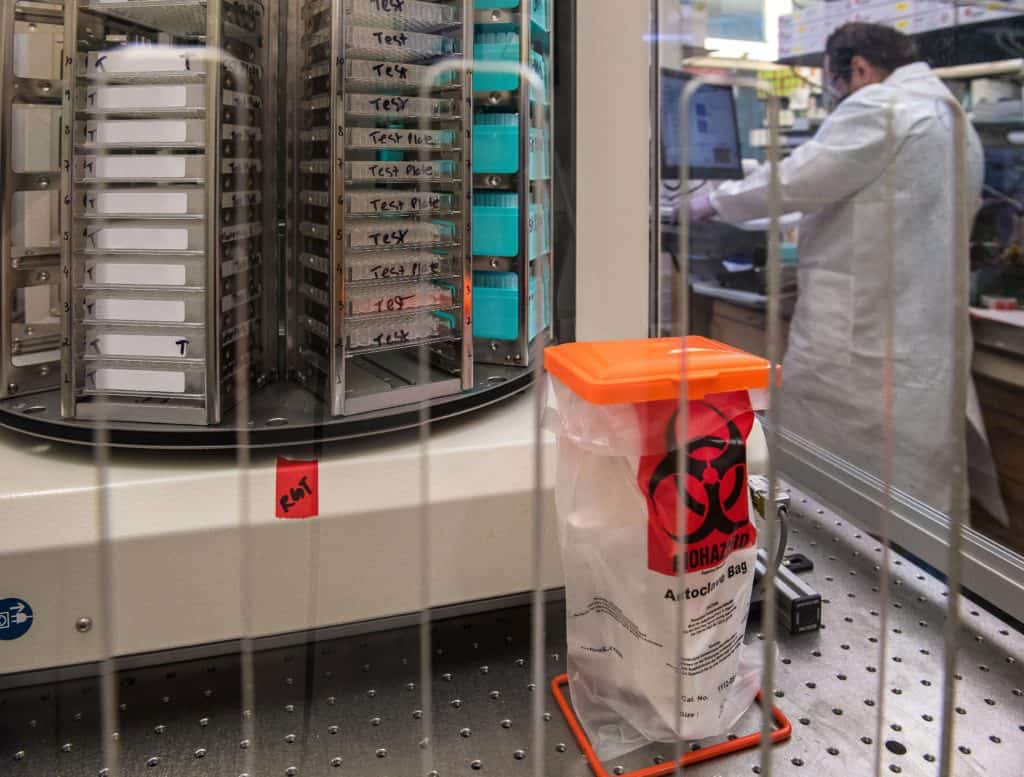
Suffering from an occupational disease that was caused by work can be a horrible experience. Usually, these conditions are much more serious than a pulled muscle or broken arm and can be quite scary, especially when you are unable to work.
You may feel concern and anxiety about how to pay your bills and put food on your family’s table. To add insult to injury, many employers fight these workers’ compensation claims and deny medical benefits and wage loss benefits.
If this is happening to you, you need skilled and knowledgeable Minnesota occupational disease workers’ compensation lawyers fighting for your rights and the benefits you deserve.
What Is an Occupational Disease Under Workers’ Compensation Law?
When most people think of a work-related injury, they think of something like a fall, broken bone, pulled muscle, or some other type of physical injury. But under Minnesota law, a “disease” can also be considered a work-related injury.
Minnesota Statute Section 176.011 defines occupational disease as:
- Mental impairment,
- Physical disease arising out of and in the course of employment peculiar to the occupation in which the employee is engaged,
- Physical stimulus resulting in mental injury, or
- Mental stimulus resulting in physical injury.
These diseases are caused by exposure to certain substances and work environments. Minnesota workers are often exposed to many chemicals, substances, and processes on a daily basis that can cause diseases and medical conditions.
Here are some of the more common occupational diseases we see in our St. Paul workers’ compensation practice:
- Cancer,
- Lung disease,
- Asthma,
- Silicosis,
- Diseases of the blood,
- COPD,
- Breathing difficulty due to chemical exposure,
- Heart attack,
- Post traumatic stress disorder (PTSD),
- Myocarditis,
- Coronary sclerosis,
- Pneumonia or its sequel, and
- Communicable diseases spread through the treatment of patients.
Most occupational diseases are permanent and can cause a worker to be totally disabled from work. In many instances, these diseases arise due to employment in factories, production facilities, foundries, warehouses, or hospitals, and other medical facilities.
What Are the Deadlines for Filing a Minnesota Occupational Disease and Workers’ Compensation Claim?
Occupational diseases are treated differently under Minnesota law than other work injuries.
To receive workers’ compensation benefits for occupational diseases like cancer, asthma, or silicosis (among others), a claim has to be made with your employer within three years of the date that the disease was discovered and determined to be work-related.
How Are Occupational Diseases for First Responders and Health Care Workers Treated Under the Law?
For first responders or health care workers (such as EMS, nurses, or doctors) who contract a disease, there is a rebuttable presumption that the disease was caught while at work.
If the employee can demonstrate through medical evidence that the disease is present in their system, then Minnesota workers’ compensation law will presume the employee caught it at work.
However, the law allows the employer to rebut this presumption if it can produce evidence to demonstrate the employee acquired the condition outside of work.
Is COVID-19 Considered an Occupational Disease and Can an Employee File for Workers’ Compensation Benefits If They Contract COVID-19?
Minnesota Statute Section 176.011 declares that the contraction of COVID-19 is considered an “occupational disease” and an employee can file a claim for benefits. It is presumed the COVID-19 diagnosis is work-related if two elements are met.
First, the employee must have been employed in a particular field identified in the statute. Those eligible include:
- Firefighters;
- Paramedics;
- Nurses and health care workers;
- Correctional officers;
- Security counselors employed at a corrections, detention, or secure treatment facility;
- Emergency medical technicians;
- Health care providers, nurses, and assistants employed in long-term care facilities who care for COVID patients; and
- Those who provide child care to first responders and health care workers.
Second, the employee must obtain a positive lab test or a diagnosis from a physician.
However, even if the employee proves these two elements, the employer can submit evidence to rebut the connection to work by demonstrating that the employee did not catch COVID-19 at work but was exposed to the virus in some other setting.
The Minnesota Occupational Disease Lawyers at Arechigo & Stokka Are Here to Help with Your St. Paul Workers’ Compensation Claim
If you have suffered from an occupational disease caused by your work environment, you need to have skilled and knowledgeable lawyers fighting for your rights to receive workers’ compensation benefits, including both medical benefits and wage benefits for as long as necessary.
Our lawyers have successfully handled hundreds of Minnesota workers’ compensation cases. Contact us online or call Arechigo & Stokka at 651-505-5943 to learn more about the services we provide to injured workers in Minnesota.



